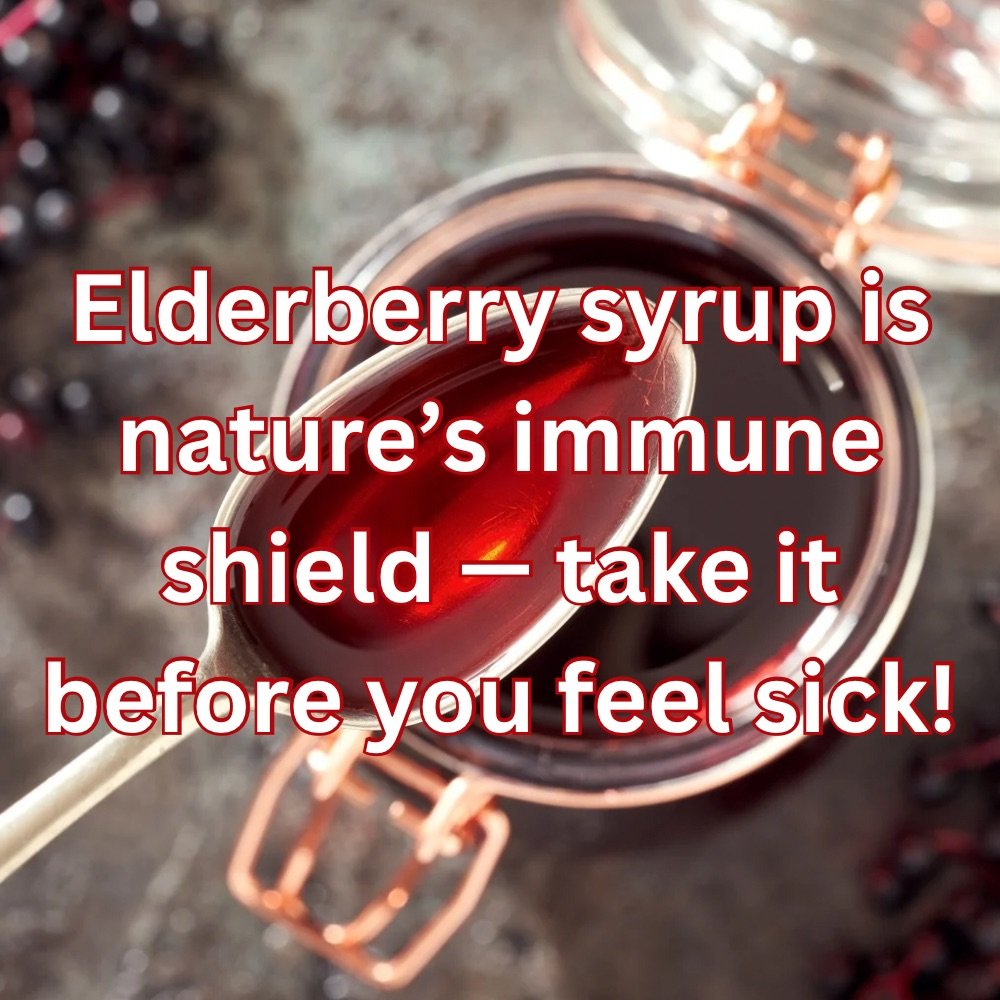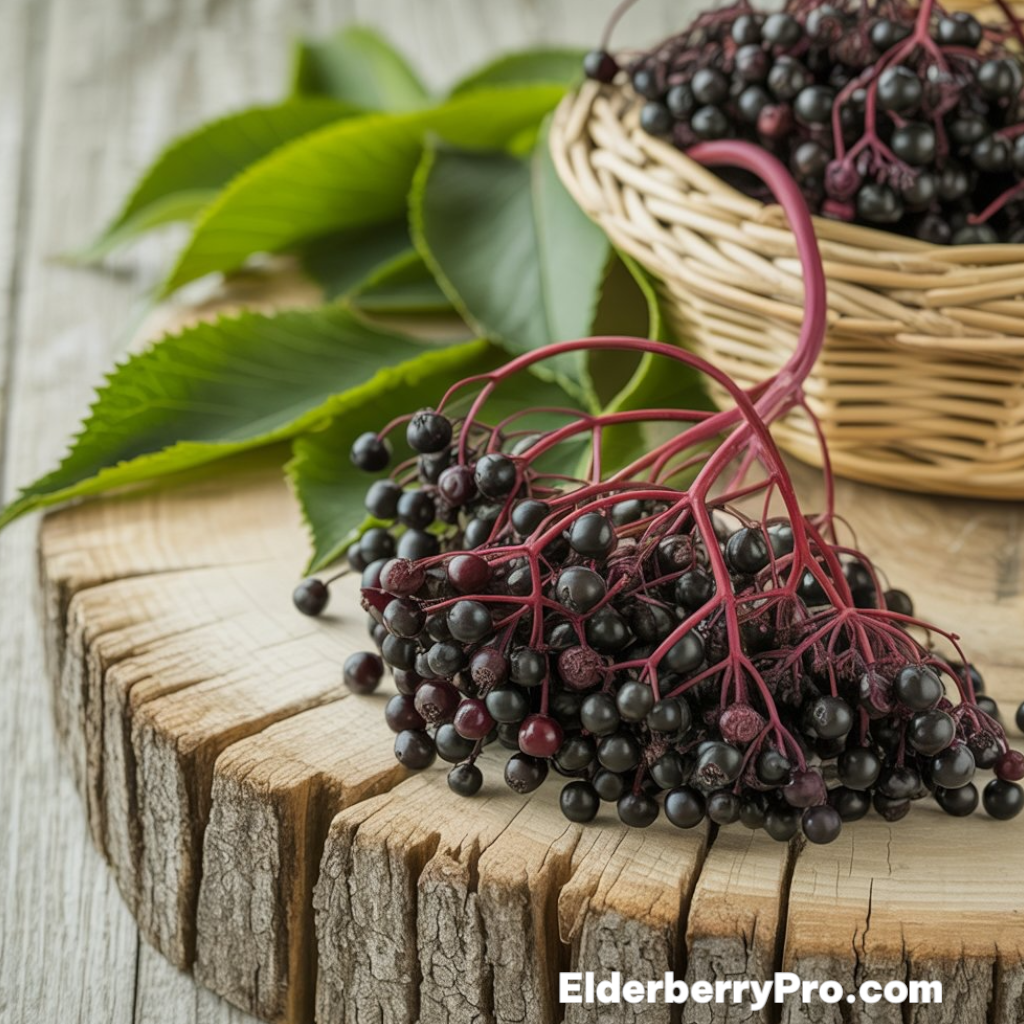
What Is the Ideal Elderberry Dosage for Adults?
If you’re adding elderberry to your daily routine, you’re probably wondering how much is too much — and how much is just right. Whether you’re sipping syrup, popping gummies, or brewing tea, nailing the correct elderberry dosage for adults is key to getting those immune-boosting benefits without overdoing it.
Elderberry isn’t just a trendy health supplement. It’s been used for centuries to help people fight off colds, flus, and general sick-season blues. But the dosage can vary a lot depending on the form you’re taking and whether you’re using it daily or to knock out symptoms fast.
Does Elderberry Really Work? Let’s Talk Benefits
You might be asking, is elderberry worth the hype? Based on real-world results and growing research, the answer is yes — especially when it comes to supporting your immune system.
Elderberry is packed with antioxidants and vitamins that help reduce inflammation, fend off cold and flu viruses, and even soothe allergy symptoms. That’s why we covered this in detail in 👉 Does Elderberry Help With Allergies? What I’ve Learned Firsthand — because sometimes your body just needs a little herbal backup. But even though elderberry is powerful, that doesn’t mean more is always better.

How Much Elderberry Should Adults Take Daily?
The sweet spot for elderberry dosage in adults depends on your goal. For daily immune support, most people take about 150–300mg of elderberry extract or 1–2 teaspoons of syrup. For short-term symptom relief (like when you feel a cold coming on), some increase it to 4 teaspoons per day, split into 2 doses.
And yes — there are different forms of elderberry: syrups, gummies, capsules, teas, and even DIY mixes. Each one varies in concentration, so always check the label if you’re buying a supplement. Or better yet, learn to make your own with natural ingredients you can trust — like in our 👉 homemade elderberry syrup without honey recipe.

Elderberry Dosage Chart (Syrup, Capsules, Tea, and More)
Need a quick breakdown of how much to take? Here’s a simple guide to help you get it right:
ELDERBERRY DOSAGE CHART
Syrup 1–2 teaspoons
Gummies 1–2 gummies
Capsules 300–500 mg
Tea 1–2 cups
Remember, if you’re making syrup at home, potency can vary. That’s why many folks are turning to natural DIY options that still keep dosage control in mind. Need to avoid honey? Here’s how 👉 How to Make Elderberry Syrup Without Using Honey.
Can You Take Too Much Elderberry Syrup?
Yes, there is such a thing as too much. Even though elderberry syrup is a natural remedy, overuse can cause stomach cramps, nausea, or diarrhea—especially if you’re using raw or improperly prepared berries.
Stick to recommended dosages:
- Daily use: 1–2 teaspoons for adults.
- During illness: Up to 4 teaspoons per day, split into two doses.
If you’re taking other immune-boosting supplements or medications, talk to a health professional first. You don’t want to overload your system or cause unnecessary interactions. Also, check that your syrup doesn’t have added ingredients like echinacea or high sugar levels if you’re watching other health conditions.
Want to learn how to make a safer version at home? Here’s our trusted guide on how to make elderberry syrup without using honey.

Best Times of Day to Take Elderberry Syrup
Timing can make a difference. For general wellness, taking your elderberry syrup in the morning with breakfast helps kickstart your system. When you’re sick, take it morning and evening to help reduce symptoms and promote recovery.
If you’re using gummies or capsules, the same rule applies. Always take with food to help your body absorb the nutrients and reduce any chances of an upset stomach.
For children or elderly adults, always space doses out and follow specific guidelines like those found in our detailed dosage guide for kids, especially if you’re using your own homemade elderberry syrup.
Storing Elderberry Syrup Properly for Best Results
To keep your elderberry syrup potent and safe:
- Refrigerate after opening if it’s a homemade or preservative-free version.
- Use within 2–3 months for homemade syrup or follow the expiration date if store-bought.
- Store in dark glass bottles when possible to prevent light from breaking down nutrients.
If you’re making your own batch at home, you can learn the full process step-by-step in our tutorial on how to make elderberry syrup the easy way. That method keeps it fresh, flavorful, and effective.

Can You Take Elderberry Syrup Daily?
Yes — in most cases, you can take elderberry syrup daily, especially during the colder months or when flu and colds are making the rounds. Many folks use it as a gentle daily immune booster, particularly if they’ve made their own elderberry syrup at home.
That said, it’s always smart to listen to your body. If you feel off or experience digestive issues, take a break and try cycling: five days on, two days off.
Want to learn how to make a more stomach-friendly version for daily use? We’ve got you covered in this article on how to make elderberry syrup without using honey, perfect for those who avoid sweeteners or have sensitivities.

Does Elderberry Syrup Actually Help Adults?
Absolutely — while more research is always welcomed, plenty of studies and real-world experience suggest that elderberry syrup helps shorten flu symptoms, boost immune response, and reduce the severity of colds.
The key is consistency. Taking the right elderberry syrup dosage for adults — especially when you first feel symptoms coming on — may help your body fight off infections quicker and recover with less discomfort.
We’ve also explored elderberry wine as a natural remedy (and yes, a treat) — you can check out how to make it right here.

Can Elderberry Syrup Be Taken on an Empty Stomach?
It can, but it’s usually best to take elderberry syrup with a meal or snack, especially for those with sensitive digestion. The berries themselves are rich in antioxidants and flavonoids, which are great for your immune system — but taking them on an empty stomach may cause minor stomach cramping for some people.
If you’re experiencing discomfort, don’t give up — just try mixing your elderberry syrup into a morning smoothie, warm tea, or even yogurt. You’ll still get the immune-boosting benefits, without the belly upset.
Different Forms of Elderberry — Which Works Best?
There’s syrup, of course, but elderberry also comes in:
- Gummies
- Tinctures
- Capsules
- Homemade jelly (yes, it’s a thing!)
Each has its perks. Syrup is most popular for kids and fast absorption. Capsules are mess-free and travel-friendly. Gummies are tasty but often loaded with sugar, while homemade jelly, like this apple and elderberry blend, gives you a fun, spreadable option that still packs a nutritious punch.
The trick is using high-quality elderberries, whether you’re crafting it yourself or buying from a trusted source. Always check ingredient labels and avoid added junk.

How Long Does Elderberry Syrup Stay in Your System?
Elderberry syrup doesn’t hang around for long — your body will typically process and absorb its active compounds within a few hours. That’s why consistency matters when you’re using it as a daily support or when symptoms hit.
Think of it like this: You wouldn’t expect one salad to fix your health, right? The same goes for elderberries. Regular intake (in safe amounts) gives your body the antioxidant and antiviral support it needs to stay ahead of seasonal bugs. Our guide on how to take elderberry syrup safely breaks it down even further.
Should You Take Elderberry Syrup Year Round?
This is one of those “it depends” kind of questions. Some folks only use it during flu season, while others take a low daily dose of elderberry syrup year-round as part of their immune routine. If you’re prone to catching every cold that comes your way, a small daily serving might be worth it.
We dive deeper into how often and when to use elderberries in our article on elderberry syrup without honey, which gives more flexibility for year-round use — especially for those avoiding sugar or allergens.

Can Kids and Toddlers Take Elderberry Syrup Too?
Yes — but dosage matters big time. Young children need much smaller amounts, and it’s best to avoid elderberry products with raw honey if they’re under a year old. That’s why many parents make their own elderberry syrup at home using kid-safe ingredients.
We’ve broken down exact dosage amounts in our full guide to elderberry syrup dosage for kids, and we even cover toddlers specifically with helpful tips for picky little ones.
Homemade versions without honey or sugar are especially helpful here — and yes, they actually taste good enough for kids to enjoy!
Elderberry Syrup and Stomach Issues — What You Need to Know
If you’ve ever had stomach pain after taking elderberry, you’re not alone. Some people react to the lectins or compounds in improperly cooked berries. Others may just have a sensitive gut.
We’ve put together a guide explaining exactly why elderberry syrup might upset your stomach, including what to avoid and how to make it easier on digestion. Spoiler: simmering elderberries properly and skipping added sweeteners can make all the difference.
Whether you’re dealing with IBS, reflux, or just a touchy gut, there are ways to keep elderberry in your life safely.

What Happens If You Take Too Much Elderberry Syrup?
Even though elderberry syrup is natural, too much of anything can backfire. Going overboard might cause nausea, diarrhea, or other stomach upset. In rare cases, especially with raw or improperly prepared berries, it can lead to more serious symptoms.
That’s why sticking to the proper elderberry syrup dosage for adults is so important — not just for effectiveness, but also for safety. If you’re unsure, our guide on how to take elderberry safely has everything you need to know.
When Should You Avoid Elderberry Syrup Altogether?
Elderberry is generally safe for most people when cooked and taken in reasonable amounts. But there are exceptions. You should talk to your doctor before using elderberry syrup if you:
- Are pregnant or breastfeeding
- Have autoimmune conditions (like lupus or RA)
- Take immune-suppressing medications
In these situations, elderberry’s immune-boosting properties could potentially do more harm than good. It’s always better to err on the side of caution. If you’re making homemade syrup, our guide on how to make elderberry syrup without honey is a great low-risk starting point for families and beginners alike.

Elderberry Syrup vs. Gummies vs. Capsules
All elderberry forms aim for the same benefit — but how you take it can matter. Syrup tends to absorb quicker, especially when taken on an empty stomach. Gummies are more fun and easy for kids, but they may have added sugars or fillers. Capsules offer a no-fuss option and travel well.
If you’re comparing options, our breakdown of elderberry syrup types dives into ingredients, absorption, and more.
We’re big fans of syrup because of how easy it is to customize — especially when you make your own and control exactly what’s in it.
Our Last Thoughts on Elderberry Syrup Dosage for Adults
Figuring out the right elderberry syrup dosage for adults isn’t complicated, but it’s important. The key is to stay consistent, avoid mega-doses unless you’re actively fighting something off, and make sure your syrup is properly prepared (or purchased from a quality brand).
Whether you’re using it for daily wellness, cold and flu season, or just because grandma swore by it — elderberries are one of the most beloved natural remedies out there for a reason. For more helpful reads, be sure to check out our favorite tips on:
- Making elderberry syrup without honey
- How to make elderberry wine at home
- Why elderberry might cause stomach pain
- What’s actually in elderberry syrup
Stay well, and use the power of elderberries the smart way. This isn’t a trend — it’s a tradition backed by both old-school wisdom and modern experience.
As an Amazon Associate we earn from qualifying purchases through some links in our articles.